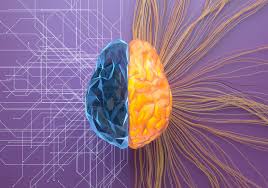A groundbreaking clinical trial led by a collaboration between Duke-NUS Medical School, the National Heart Center Singapore (NHCS), and Klinikum Nürnberg, Germany, has upended established beliefs about the mechanism of SGLT2 inhibitor drugs in treating heart failure. These medications, originally developed for diabetes management, have been widely presumed to alleviate heart failure symptoms primarily by acting as diuretics, aiding in fluid reduction.
Contrary to this assumption, findings published in the Journal of the American College of Cardiology suggest that SGLT2 inhibitors may not exert their therapeutic benefits through increased urine production and subsequent fluid loss. The study, a double-blind, randomized, placebo-controlled trial involving the SGLT2 inhibitor dapagliflozin, demonstrated unexpected results regarding its effects on urine volume in patients with chronic heart failure.
Dr. Adriana Marton, the study’s first author and visiting senior research fellow at Duke-NUS, highlighted, “Our data challenges the conventional view that SGLT2 inhibitors act primarily as diuretics in heart failure management. Instead, we discovered a sophisticated physiological response where the body compensates for potential dehydration induced by these drugs.”
The trial revealed that despite significantly elevated glucose excretion in urine—a hallmark effect of SGLT2 inhibitors—the expected increase in urine volume did not occur as anticipated. Rather, the body responded by increasing levels of vasopressin, a hormone that directs the kidneys to conserve water. This mechanism effectively countered the anticipated diuretic effect, maintaining stable urine volumes among participants.
Senior author Associate Professor Jens Titze from Duke-NUS explained, “Our findings suggest that the benefits of SGLT2 inhibitors in heart failure treatment may stem from mechanisms other than simple fluid reduction. The rapid adjustment by the body to conserve water challenges the traditional understanding of how these drugs operate.”
The implications of these findings extend beyond heart failure management, potentially influencing treatment strategies for conditions like chronic kidney disease and diabetes, where SGLT2 inhibitors are also increasingly utilized. The study underscores the need for further research to fully elucidate the complex mechanisms underlying the beneficial effects of these drugs on organ function and overall patient health.
Associate Professor David Sim, head of Cardiology at NHCS and a study co-author, emphasized, “This research opens new avenues for optimizing heart failure therapy and improving patient outcomes. By understanding these mechanisms better, we aim to enhance treatment strategies and ultimately support longer, healthier lives for individuals at risk of heart disease.”
As the scientific community continues to explore these findings, ongoing research collaborations between Duke-NUS and international partners aim to delve deeper into the metabolic pathways triggered by SGLT2 inhibitors. These efforts seek to unravel how these drugs may induce broader systemic benefits, potentially transforming approaches to managing chronic diseases and enhancing longevity.
The study marks a pivotal step in redefining the therapeutic landscape for heart failure and related conditions, offering hope for more effective treatments and improved quality of life for millions of patients worldwide.












